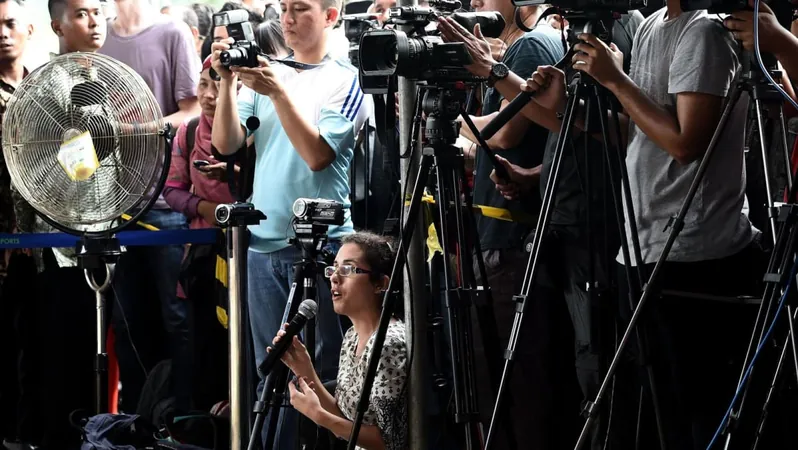
Controversy Erupts in Indonesia Over Police Control of Foreign Journalists
2025-04-04
Author: John Tan
Introduction
In a contentious move that has raised alarms among press freedom advocates, Indonesian activists have vocally condemned a new regulation that allows police oversight over foreign journalists and researchers operating within the country. This rule, issued on March 10 but only recently made public, mandates that foreign media professionals obtain a police letter for their activities in unspecified 'certain locations.'
Critics' Concerns
Critics argue that this regulation poses a serious threat to journalistic freedom in Indonesia. Mustafa Layong, executive director of the Legal Aid Institute for the Press, expressed concerns that the new rule could criminalize the work of foreign journalists and researchers who lack the required permit. He emphasized, 'There is no authority from the police to grant permits for journalistic or research activities, and this could make it more difficult for those wanting to report on critical issues.'
Andreas Harsono from Human Rights Watch echoed these sentiments, asserting that the regulation would stifle press freedom and limit coverage on sensitive topics, including human rights abuses and environmental concerns. 'In Indonesia, I fear that crucial issues such as palm oil production and the oppression of various minority groups could go underreported,' he warned.
Policing Perspective
The Indonesian National Police defended the regulation, stating it aims to maintain state sovereignty and offers protection to foreign nationals working in potentially dangerous areas. Spokesman Sandi Nugroho insisted that while the police letter may be useful, it is not mandatory, which activists point out contradicts the practical implications of the regulation.
Broader Implications
This new policy has sparked debates over the balance between national security and the fundamental right to freedom of expression. As Indonesia positions itself on the world stage, the ability of foreign journalists to report freely is critical for transparency and accountability, especially in a nation facing numerous social and environmental challenges.
Conclusion
The situation raises urgent questions: Will this regulation further isolate Indonesia from the international community? How will it affect the coverage of crucial issues that impact not only Indonesia but the broader Southeast Asian region? As the story unfolds, many are watching closely to see what this means for media freedom in one of the world's largest democracies.



 Brasil (PT)
Brasil (PT)
 Canada (EN)
Canada (EN)
 Chile (ES)
Chile (ES)
 Česko (CS)
Česko (CS)
 대한민국 (KO)
대한민국 (KO)
 España (ES)
España (ES)
 France (FR)
France (FR)
 Hong Kong (EN)
Hong Kong (EN)
 Italia (IT)
Italia (IT)
 日本 (JA)
日本 (JA)
 Magyarország (HU)
Magyarország (HU)
 Norge (NO)
Norge (NO)
 Polska (PL)
Polska (PL)
 Schweiz (DE)
Schweiz (DE)
 Singapore (EN)
Singapore (EN)
 Sverige (SV)
Sverige (SV)
 Suomi (FI)
Suomi (FI)
 Türkiye (TR)
Türkiye (TR)
 الإمارات العربية المتحدة (AR)
الإمارات العربية المتحدة (AR)